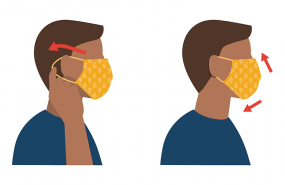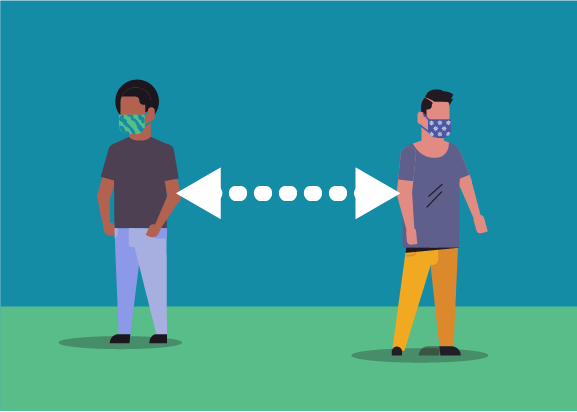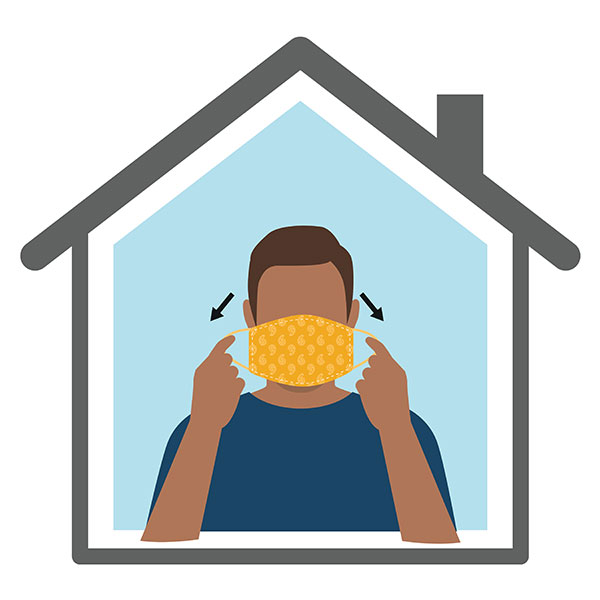Cloth face coverings are an additional step to help slow the spread of COVID-19 when combined with every day preventive actions and social distancing in public settings.
- Who should NOT use cloth face coverings: children under age 2, or anyone who has trouble breathing, is unconscious, incapacitated or otherwise unable to remove the mask without assistance.
- Cloth face coverings are NOT surgical masks or N95 respirators. Currently, surgical masks and N95 respirators are critical supplies that should be reserved for healthcare workers and other first responders.
Wear your Face Covering Correctly
- Wash your hands before putting on your face covering
- Put it over your nose and mouth and secure it under your chin
- Try to fit it snugly against the sides of your face
- Make sure you can breathe easily


Use the Face Covering to Protect Others
- Wear a face covering to help protect others in case you’re infected but don’t have symptoms
- Wear the covering in public settings when around people outside of your household, especially when other social distancing measures are difficult to maintain
- Don’t put the covering around your neck or up on your forehead
- Don’t touch the face covering, and, if you do, wash your hands
Follow Everyday Health Habits
- Stay at least 6 feet away from others
- Avoid contact with people who are sick
- Wash your hands often, with soap and water, for at least 20 seconds each time
- Use hand sanitizer if soap and water are not available


Take Off Your Cloth Face Covering Carefully, When You’re Home
- Untie the strings behind your head or stretch the ear loops
- Handle only by the ear loops or ties
- Fold outside corners together
- Place covering in the washing machine (learn more about how to wash cloth face coverings)
- Be careful not to touch your eyes, nose, and mouth when removing and wash hands immediately after removing.
Source: cdc.gov.
No comments:
Post a Comment